Project content and objectives
Time for action
For many years the prevailing belief was that flood risks can only be diminished by dikes and other spatial adaptation measures. However, NSR projects such as FRAMES, show that these measures are not sufficient in the near future to protect against extreme flooding events, which are becoming more and more prevalent because of climate change. It is therefore urgent to improve crisis management and recovery for climate-related floods. For example, the impact of a flood is often not known by local authorities, emergency services and residents, and evacuation options are not adequately identified nor implemented. Floods such as those in summer 2021 in the Netherlands, Belgium and Germany further prove the need to improve crisis management and recovery measures.
To improve, organisations active in crisis management face two challenges. Firstly, the flood perception and the self-efficacy of citizens, politicians and organisations are low, leading to insufficient capacity and preparedness to act. Secondly, climate crises are often not considered in evacuation planning, and there is little consideration for long-term resilience during post-flood recovery.
Approach
In response to these challenges, ten partners from the North Sea Region have teamed-up and established FIER, a project focused on four key areas: Flooding, Infrastructure, Evacuation, and Resilience. The aim is to enhance societal resilience and minimise the impact of flood crises. This is done by developing and implementing new approaches and routines for crises management organisations to act before, during and after floods, focusing on behavioural change and improved infrastructure.
Three objectives have been defined that the project specifically focus on:
Raise awareness and promote self-efficacy for climate-induced flood crises among local authorities and society
Improve the emergency response of crisis managing organisations to prepare and act during a climate-induced flood crisis
Enhancing capacities for resilient recovery after climate-induced floods

Team and partners
The project consortium consists of 10 partners from 5 different countries (Belgium, France, Germany, Netherlands and Sweden) with diverse backgrounds ranging from government agencies to universities. The partners are:
- Provincie Zeeland
- Veiligheidsregio Zeeland
- Jade Hochschule Wilhelmshaven/Oldenburg/Elsfleth
- Federale Dienst Gouverneur Oost-Vlaanderen – Dienst Noodplanning
- Torsby Kommun
- Federale Diensten Gouverneur West-Vlaanderen, Dienst Noodplanning
- Karlstads universitet
- Gemeente Dordrecht
- Syndicat mixte pour le schema d'aménagement et de gestion des eaux du Boilonnais (SYMSAGEB)
- BUILDERS Ecole d'ingénieurs
